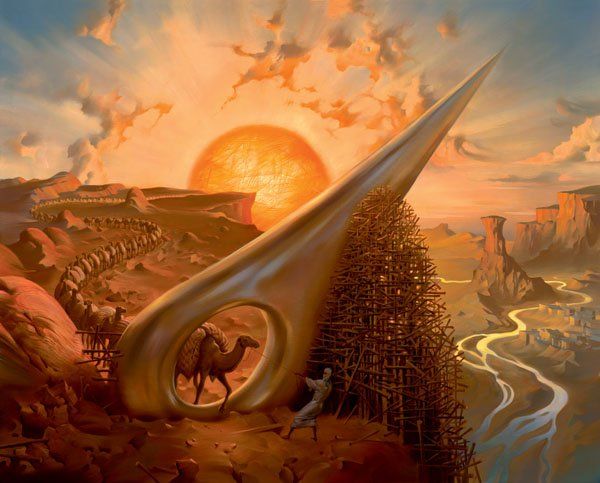
Okay... Here are a few questions for preachers prompted by this post by John Byron: How many of these "pulpit legends" have you promulgated in your time? Who did you hear them from?
1. The “eye of the needle” refers to a gate outside Jerusalem.
2. The high priest tied a rope around his ankle so that others could drag him out of the Holy of Holies in case God struck him dead.
3. Scribes took baths, discarded their pens, washed their hands, etc. every time they wrote the name of God.
4. There was this saying among the sages: “May you be covered in your rabbi’s dust.”
5. Voltaire’s house is now owned by a Bible-printing publisher which is ironic given that he was famous for saying, “One hundred years from my day there will not be a Bible in the earth except one that is looked upon by an antiquarian curiosity seeker.”
6. Gehenna was a burning trash dump outside Jerusalem.
7. NASA scientists have discovered a “missing day” which corresponds to the Joshua account of the sun standing still.
All of these are, if not actually untrue, do not have any clear documentary proof that has been furnished ie. they would be flagged up as requiring sources in any Wikipedia entry. I hadn't heard the last one, but have passed on many of the others at one time or another. Indeed I shared one a few weeks ago and a colleague shared another during our Holy Week reflections. Anyone think of others?
And why is it that we preachers, who are supposed to be purveyors of truth are so slap-dash in our use of such anecdotes and illustrations? My fear is that this is likely to get worse. In this day and age of the internet, to misquote a proverb quoted by a preacher of a previous age, C.H. Spurgeon, lies and half-truths are sprinting round the world before truth has even attempted to get it's shoes on...
Shalom
Comments